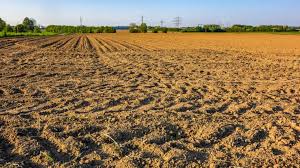Training Course on Drought Resilience and Water Conservation for Dryland Farming
Training Course on Drought Resilience and Water Conservation for Dryland Farming offers a comprehensive, practical, and evidence-based training program to empower farmers, agricultural officers, and environmental planners with the knowledge and skills to thrive under challenging climatic conditions.

Course Overview
Training Course on Drought Resilience and Water Conservation for Dryland Farming
Introduction
Dryland farming regions are increasingly vulnerable to the devastating impacts of drought due to climate change, overexploitation of water resources, and poor soil management. Building drought resilience and implementing effective water conservation strategies are critical for sustainable agriculture in arid and semi-arid regions. Training Course on Drought Resilience and Water Conservation for Dryland Farming offers a comprehensive, practical, and evidence-based training program to empower farmers, agricultural officers, and environmental planners with the knowledge and skills to thrive under challenging climatic conditions.
By integrating cutting-edge tools, climate-smart agriculture techniques, soil moisture retention methods, and sustainable irrigation technologies, this training equips participants with adaptive farming strategies for drylands. The program is tailored to real-world challenges using local and global case studies, making it highly relevant for communities and institutions seeking to enhance food security and environmental resilience.
Course Objectives
- Understand the science of climate change impact on dryland ecosystems.
- Identify key drought risk management strategies for crop survival.
- Apply soil moisture conservation practices to improve yield.
- Promote water-efficient irrigation systems in resource-scarce regions.
- Implement sustainable land management techniques.
- Integrate agroecological approaches into dryland farming.
- Enhance crop diversification and drought-tolerant crops selection.
- Analyze real-time weather data for precision farming.
- Foster community-based natural resource management.
- Leverage remote sensing and GIS mapping for water resources.
- Incorporate rainwater harvesting systems into farming models.
- Develop policy frameworks for drought resilience.
- Build capacity in adaptive agricultural practices.
Target Audiences
- Smallholder farmers
- Agricultural extension officers
- Environmental planners
- NGO workers in sustainable agriculture
- Agronomy students and researchers
- Policy makers in water and agriculture
- Community leaders in dryland regions
- Climate resilience project implementers
Course Duration: 5 days
Course Modules
Module 1: Understanding Dryland Ecosystems and Climate Impact
- Introduction to dryland farming systems
- Climate variability and drought cycles
- Soil degradation and land cover changes
- The role of climate-smart agriculture
- Drought vulnerability assessments
- Case Study: Sahel Region—Community Drought Monitoring Systems
Module 2: Soil and Water Conservation Techniques
- Soil moisture retention methods (e.g., mulching, zai pits)
- Contour farming and terracing
- Use of organic and green manures
- Cover cropping for soil protection
- Enhancing water infiltration
- Case Study: India’s Bunding Techniques in Rajasthan
Module 3: Efficient Irrigation and Water Harvesting
- Drip and sprinkler irrigation systems
- Rainwater harvesting structures
- Water recycling and reuse
- Scheduling irrigation using soil moisture sensors
- Calculating crop water requirements
- Case Study: Israel’s Micro-Irrigation Success Model
Module 4: Drought-Resistant Crops and Crop Management
- Selecting drought-tolerant seed varieties
- Mixed cropping and crop rotation strategies
- Timely planting and harvesting schedules
- Climate forecasting tools for planting
- Seed banks and local genetic diversity
- Case Study: Use of Sorghum in Sub-Saharan Africa
Module 5: Agroforestry and Integrated Land Use
- Agroforestry systems in drylands
- Windbreaks and shelterbelts
- Multi-purpose trees and shrubs
- Improving biodiversity for ecosystem health
- Sustainable livestock integration
- Case Study: Kenya’s Farmer-Managed Natural Regeneration (FMNR)
Module 6: Data-Driven Farming and Digital Tools
- Weather forecast interpretation
- GIS and remote sensing for resource mapping
- Mobile apps for farm management
- Drought early warning systems
- Monitoring evapotranspiration levels
- Case Study: Ethiopia’s Digital Farming Platforms
Module 7: Policy and Institutional Support for Resilience
- National and local drought management policies
- Access to climate adaptation financing
- Insurance schemes for drought-prone farmers
- Building institutional partnerships
- Promoting farmer cooperatives
- Case Study: Policy Reforms in Morocco’s Agricultural Resilience Plan
Module 8: Community Engagement and Behavioral Change
- Farmer field schools and participatory training
- Gender-inclusive resilience strategies
- Social behavior change communication (SBCC)
- Conflict resolution in resource sharing
- Strengthening indigenous knowledge systems
- Case Study: Niger’s Community-Led Water Stewardship
Training Methodology
- Interactive lectures and multimedia presentations
- Practical field-based demonstrations
- Real-life case studies and success stories
- Group discussions and community mapping exercises
- Problem-solving and role-play simulations
- Monitoring, evaluation, and follow-up toolkits
Register as a group from 3 participants for a Discount
Send us an email: [email protected] or call +254724527104
Certification
Upon successful completion of this training, participants will be issued with a globally- recognized certificate.
Tailor-Made Course
We also offer tailor-made courses based on your needs.
Key Notes
a. The participant must be conversant with English.
b. Upon completion of training the participant will be issued with an Authorized Training Certificate
c. Course duration is flexible and the contents can be modified to fit any number of days.
d. The course fee includes facilitation training materials, 2 coffee breaks, buffet lunch and A Certificate upon successful completion of Training.
e. One-year post-training support Consultation and Coaching provided after the course.
f. Payment should be done at least a week before commence of the training, to DATASTAT CONSULTANCY LTD account, as indicated in the invoice so as to enable us prepare better for you.